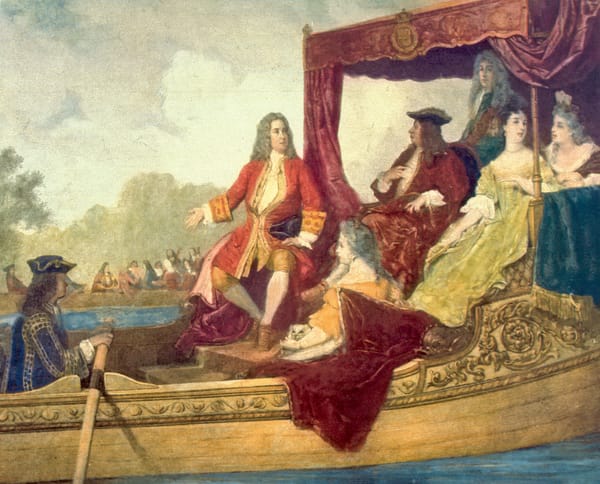Romantic Deceptions and Humorous Metamorphoses: Unveiling the Charms of Donizetti’s Don Pasquale

Don Pasquale is a comic opera in three acts by Gaetano Donizetti which premiered in Paris in 1843 and had its Italian premiere later that year in Milan. It is a ‘romantic comedy’ with 19th-century values. The plot, set in Rome, revolves around Don Pasquale, who wants his nephew Ernesto to marry for convenience instead of love. Ernesto, however, is in love with Norina, a young widow. Dr. Malatesta, who is Pasquale’s friend, wants to help the lovers unite and hatches an elaborate plot with Norina to achieve this. He presents her as his sister to Pasquale, suggesting that they should marry each other. Once the contract of marriage is finalised, Norina is to harass Pasquale to such an extent, that he will eventually be relieved to be rid of her, even if it is to marry Ernesto. A veritable success when it premiered, the humour of Don Pasquale lies in the chicanery that Pasquale must endure and the metamorphosis of Norina from a shy, demure bride to a ‘virago’.
Don Pasquale is the quintessential old bachelor, old-fashioned, stingy, gullible but a good person. Dr. Malatesta is a man who lives by his wits. Ernesto and Norina are young, impulsive and willing to do anything to marry each other and even more to make sure Ernesto is not disinherited by Pasquale. Four characters and a story as old as time, yet Don Pasqualestands apart from the rest. Pasquale, defeated and tricked, is depicted as ridiculous and pathetic and is eventually deprived of his last illusion about life.
The music is exquisite—at times brilliant and at others playful, but also sentimental when it needs to be so. All is perfect in Don Pasquale from the famous overture with its serenade theme to the final admonishment against marrying at an old age. In between are gems like the Norina-Malatesta duet in the first act, the squabble between Pasquale and Norina in the second and in the famous third act, the secret meeting of Pasquale and Malatesta, and Ernesto’s serenade, ‘Com’è gentil’.
In Norina’s entrance aria, set to an irresistible dance tune, she laughs at sentimental tales and asserts her own ability to stimulate love. The humour is captivatingly revealed in the aforementioned duet, as is sympathy when Norina feels sorry for the slap she gave Pasquale. It is Norina’s capacity for tenderness that keeps her sense of humour within the bounds of good taste; and that good taste is found everywhere in the music. It is said that Donizetti composed the opera in a very short time—in about two weeks. The whole action is carried by the four principals. The chorus has one moment of prominence in the last act and then appears as background for Ernesto’s serenade. The overture is mainly concerned with Ernesto’s serenade from the last act and Norina’s aria from the first.
The time at which Donizetti wrote this was a very difficult period in his life. Almost 50 years old, he was at the height of his fame but suffering from a series of deaths in the family and exhausted from his journeys between Vienna, Paris and Italy. This, in addition to working long hours every day, eventually took a toll on him. The composer said farewell to comic opera with this work. Together with The Barber of Seville and Falstaff, Don Pasquale forms the great Italian comic opera triad of the 19th century. It is a triad of great vitality which still dominates the world’s opera houses.
To bring out the flavour of this opera, we have in our collection a true interpretation of the characters involved headed by a master singer, Tito Schipa, accompanied by Ernesto Badini, Afro Poli and Adelaide Saraceni. The opera has been conducted by Carlo Sabajno, who was among the prominent conductors of the time.
The NCPA houses the world-famous Stuart-Liff Collection of 6,000 books, 11,000 LPs and 12,000 CDs on Western classical music. This collection was generously donated to the Centre in 2009 by Vivian Liff, on behalf of George Stuart and himself, as a gesture of their friendship with Chairman Mr. Khushroo N. Suntook, an avid collector and connoisseur himself. The collection is an invaluable source for research by musicologists and students as well as for general music lovers. The library housing the collection is open from 10 am to 5.15 pm on weekdays.
By Jimmy Bilimoria. This piece was originally published by the National Centre for the Performing Arts, Mumbai, in the August 2023 issue of ON Stage – their monthly arts magazine.





